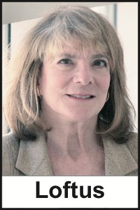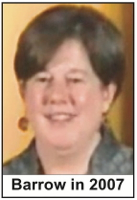Rascals case in brief
In the beginning, in 1989, more than 90 children at the Little Rascals Day Care Center in Edenton, North Carolina, accused a total of 20 adults with 429 instances of sexual abuse over a three-year period. It may have all begun with one parent’s complaint about punishment given her child.
Among the alleged perpetrators: the sheriff and mayor. But prosecutors would charge only Robin Byrum, Darlene Harris, Elizabeth “Betsy” Kelly, Robert “Bob” Kelly, Willard Scott Privott, Shelley Stone and Dawn Wilson – the Edenton 7.
Along with sodomy and beatings, allegations included a baby killed with a handgun, a child being hung upside down from a tree and being set on fire and countless other fantastic incidents involving spaceships, hot air balloons, pirate ships and trained sharks.
By the time prosecutors dropped the last charges in 1997, Little Rascals had become North Carolina’s longest and most costly criminal trial. Prosecutors kept defendants jailed in hopes at least one would turn against their supposed co-conspirators. Remarkably, none did. Another shameful record: Five defendants had to wait longer to face their accusers in court than anyone else in North Carolina history.
Between 1991 and 1997, Ofra Bikel produced three extraordinary episodes on the Little Rascals case for the PBS series “Frontline.” Although “Innocence Lost” did not deter prosecutors, it exposed their tactics and fostered nationwide skepticism and dismay.
With each passing year, the absurdity of the Little Rascals charges has become more obvious. But no admission of error has ever come from prosecutors, police, interviewers or parents. This site is devoted to the issues raised by this case.
On Facebook
Click for earlier Facebook posts archived on this site
Click to go to
Today’s random selection from the Little Rascals Day Care archives….
Click for earlier Facebook posts archived on this site
Click to go to
Today’s random selection from the Little Rascals Day Care archives….
How much like Penn State were day-care cases?
Jan. 11, 2012
“It’s worth remembering, in the 1980s we had a whole spate of false accusations of… sexual abuse of children. The McMartin Preschool, all those supposed satanic cults in day care centers, turned out to be false…. It’s worth it to remind people of that.”
– Legal analyst Jeffrey Toobin, interviewed on CNN (Nov. 15) about the Penn State case
In fact, deep distinctions separate Penn State and the “multi-victim, multi-offender” – MVMO, in the sex-crime argot – accusations typified by McMartin and Little Rascals.
Since 1995, Ontario Consultants on Religious Tolerance has investigated 40 alleged MVMOs at 24 locations around the world. Number of substantiated instances of ritual abuse: zero.
According to its research, “Any criminal acts were non-ritual abuse by a single perpetrator… Almost all the crimes with which people were charged never happened.”
Regardless, Toobin’s reminder is a welcome counterpoint to the Judge Nancy Grace school of instant verdicts.
How to uncover ritual abuse: a foolproof recipe
Oct. 17, 2012
“Little Rascals is a most important case, because it demonstrates how the mind set of interviewers can be transmitted to the children and persuade them to disclose events that never happened. A San Diego grand jury which investigated child abuse observed:
Of particular interest is the information received about the Little Rascals case in North Carolina. Eighty-five percent of the children received therapy with three therapists in the town; all of these children eventually reported satanic abuse. Fifteen percent of the children were treated by different therapists in a neighboring city; none of (these) children reported abuse of any kind after the same period of time in therapy.
“In effect, the Edenton (multiple victim, multiple offender) case was a real-life replication of the type of laboratory experiment that could never be done for ethical reasons:
- Select a town or city in any area of the U.S. or Canada.
- Take 90 children, and divide them into two equally sized test and control groups.
- Have the test group interrogated by therapists who believe in ritual abuse, using direct and repeated questions.
- Have the control group independently interrogated by therapists who are skeptical of ritual abuse using general questioning.
- Compare rates of disclosures of ritual abuse from the two groups. “
The probable result would be that close to 100% of the test group and about 0% of the control group would reveal ritual abuse.”
– From “Ritual abuse cases in day care centers” on ReligiousTolerance.org, (Ontario Consultants on Religious Tolerance)
For therapist, creating memory is easy task
 June 13, 2012
June 13, 2012
“Actually, making a false memory is pretty easy.
“(Psychologist Elizabeth) Loftus describes a father convincing his daughter she’d gotten lost in a mall when she was five years old. At first, the daughter denied any memory of the event, but as the father provided more fake details – ‘Don’t you remember that I told you we would meet at the Tug Boat?’ – the daughter began to ‘remember’ and even provide details of her own. Eventually when her father said, ‘I was so scared,’ she responded, ‘Not as scared as I was!’…
“You can probably imagine the implications of false memory in the courtroom or on the therapist’s couch (which famously leads to the courtroom)….”
– From “How You Remember, How You Decide: Memory Part II”
by Garth Sundem in Psychology Today (October 6, 2010)
View from Edenton: ‘I never considered leaving’
 April 29, 2013
April 29, 2013
If you watched “The Plea,” the concluding 1997 installment of “Innocence Lost,” you might not expect that Nancy Smith Barrow, Betsy’s sister, would choose to remain in the midst of those townspeople who caused her family such brutal and unjustified pain.
But stay she has, raising a family and participating in community affairs. I talked to her recently about her life then and now.
Why she has continued to live in Edenton:
“I never considered leaving. My parents were here. This is my home. For a long time, I imagined my dad, mom, sister and I would be back here together, after it all unraveled, after people looked behind the curtain and saw the Wizard….”
What Edenton was like for her during the Little Rascals panic:
“I’d walk into a public place and scan the room to see if I would be comfortable there. I never felt any physical threat – that’s not the kind of people they are here…. But I didn’t want my children exposed to such obvious and outward hatred….”
What Edenton is like for her today:
“Once Bob’s verdict was overturned, that was the end of it. Now I go where I want and do what I want….
“Things went very badly for the indicting parents. But they still believe – because they have to believe….
“Some of them I will talk to in the grocery store or at school, but we are not welcome in each others’ homes….
“Our children went to school together, and they finished growing up together (without conflict). It was like when the adults went away, when the adults got tired of playing, the children were left to clean up the game….”
How she looks back at the case:
“My sister (who now lives in Raleigh) has a life we could never have imagined, a wonderfully normal life. Everyone I loved at Little Rascals is free. My children (now 32 and 28) are fine and healthy…. The Little Rascals case was a phenomenon of epic proportions, and we weathered it….”











0 CommentsComment on Facebook